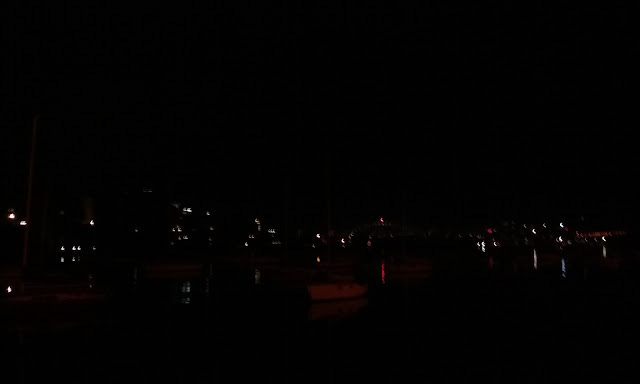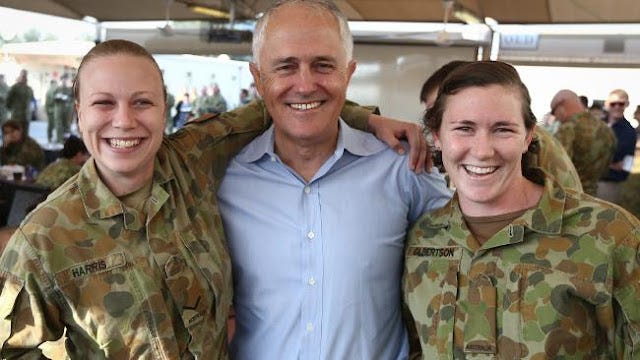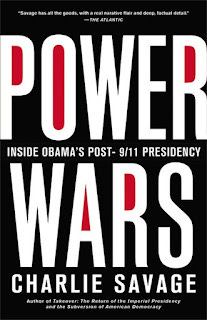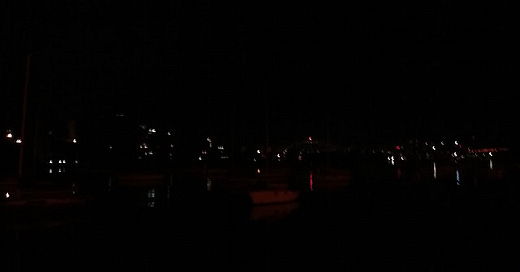
Ruschutters Bay in the predawn Picture by John Stapleton
When Paris was attacked politicians and pundits fell all over themselves rushing to proclaim what Washington should do next in the war on terror. The vast majority of them would have done better to keep quiet and read Charlie Savage’s new book, “Power Wars,” instead. It offers a master class in how to think seriously about crucial aspects of the subject.
Gideon Rose, The New York Times.
Flights of fancy and a deconstructive air. Build, rebuild, destroy. "Nothing in this country works," his friend grumbled after they left the ANZ bank in Newtown. It was taking five days to transfer funds which should have taken less than a second. "The biggest thieves in the country are the banks, the insurance companies and the government," he grumbled; a kind of secondhand discontent, because by now he had no faith that anything would ever improve. It was simply a matter of watching the decline and fall. A thousand times, a thousand times. A democracy that was increasingly becoming a failed state; a failure for its citizens, a failure of purpose, a loss of hope. "It's no wonder everyone wants to leave Australia," he said, as they crossed back over King Street.
Lord Malcolm was off in the US hobnobbing with Obama, but at least he had done one sensible thing since coming to power: he had knocked back the request for more troops and more involvement in the Middle East. Australia, historically, almost never said no to anything the Americans asked, an historical obsequiousness which had cost them billions in useless wars and arms purchases, made their own populations less safe, cost hundreds of lives destroyed or damaged, but there it was. We could stand proud. No we could not.
Turnbull had just made a flying 90 minute visit to Iraq; to the Australian base, where 100 SAS soldiers remained hunkered down in a compound where they dared not go outside, within spitting distance of Islamic State territory; and a prime target. The official claims that they were there training Iraqi troops was no doubt just bullshit. For a start, they were a proud people, why would they want to be trained by a bunch of infidels from the other side of the world? The Daily Telegraph, a Murdoch rag which had really in recent years become a rag, reported that the troops were ecstatic to see their Prime Minister. No Australian is ecstatic at the site of a politician, a ruling class for which they have little but contempt. Perhaps they were a little over-excited at the idea that they might finally be getting out of the hellhole that Abbott, Turnbull's predecessor, had sentenced them to. Hundreds of millions of dollars had been wasted on a deployment which had, like all the other involvements, simply made matters worse.
"Lions led by donkeys," as the British would say of their own incompetent generals. "Police informant." There you go. The voices always knew best. Some things didn't make sense. Stories didn't add up. Delusions didn't always count. "What's an old guy like you doing here in shorts?" some potbellied houso demanded to know. "Same as me? Parading your wares?"
"Thanks," he said, and listened to some cruelly, crudely pointless jokes.
"Nothing is as it seems." "Things are not always what they appear." He was going to annoy them as best he could. Imaginary friends. As he walked past graffitied walls and rundown houses, tatty down-at-hell shops and a cruel wandering of the mind. He had wanted a base, he didn't want a home. Everything was far from ideal; but perhaps constraints were what were called for. Not the freedom to party through the long nights; drawn not by the oblivion seeking of the past, because he could not cope with the way he felt or the way he thought, but by some hopelessly juvenile desire for adventure which never was. Sex that never was. Satisfaction, fulfilmnet, that could never be. Sydney for many of its increasingly unhappy inhabitants was merely a prelude, a backdrop, a launch pad. He would be gone soon enough.
"Are we really that stupid?"
THE BIGGER STORY:

THE BIGGER STORY:
http://www.theaustralian.com.au/in-depth/terror/malcolm-turnbull-we-wont-be-in-iraq-forever/news-story/7dc9bb77a444747727a359ed659e7540
Malcolm Turnbull has countered calls for more Australian “boots on the ground” in Iraq as he prepares for a meeting with US President Barack Obama within days to renew talks on the fight against Islamic State.
Visiting Australian troops in the Middle East on the weekend, Mr Turnbull declared it vitally important that people see Iraqi forces rather than foreign troops retaking cities like Ramadi from the terrorist group.
The Prime Minister also revealed that Iraqi Prime Minister Haider al Abadi made no request for additional Australian help to defeat Islamic State.
“The Iraqi government did not ask us to do anything extra, although we had a very constructive discussion with the Prime Minster,” Mr Turnbull said.
Days before flying to Washington DC for talks on international security, Mr Turnbull flew into Baghdad and an Australian base north of the Iraqi capital to meet some of the 300 Australian troops who are training local soldiers.
While Mr Turnbull said the Australian contribution would “evolve” over time, he gave no ground to critics including former defence minister Kevin Andrews who have renewed their calls for a bigger commitment to defeat the terrorists.
“What further commitments we were to make would depend on the circumstances, but we do not intend to be in Iraq forever,” Mr Turnbull said.
Addressing troops the Taji base, Mr Turnbull told them that his Iraqi counterpart had strongly praised the Australians for their “critical role” in helping Iraqi troops retake Ramadi.
The success against Islamic State had given the Iraqi government a “strategic lift” that could not have been done without the Australian troops, Mr Turnbull said.
Mr al Abadi had given the impression of “real, substantial confidence” that Iraq was “turning the corner” in the battle against Islamic State, Mr Turnbull told the troops.
“It’s obviously vitally important that a city like Ramadi, and others to follow, are seen to be taken by Iraqi forces,” Mr Turnbull told them.
“They’ve got to win back their country but they need our help, and more importantly they need your help and you’ve provided it with great skill.”
Australia is the second-largest contributor to the US-led fight against Islamic State, with six Hornet fighter jets flying missions over Iraq and Syria while hundreds of troops assist the Iraqi National Army.

FEATURED BOOK:

Barack Obama promised change from George W. Bush's global war on terrorism. But the Obama administration used drones to kill suspected militants and vacuumed data on Americans' phone calls. Obama criticized Bush's unilateralism and secrecy, but launched wars without going to Congress and presided over an unprecedented crackdown on leaks. As the New York Times New York Times book reviewer Gideon Rose wrote of Power Wars: Inside the Post 9/11 Obama Presidency by Pulitzer Prize winning journalist Charlie Savage explores how and why Obama and his legal team, an elite, liberal group who vowed to restore the rule of law, end up accused of entrenching the sweeping powers of the post-9/11 security state. If legitimate, the accusation stands to change the legacy of Obama's entire presidency.

iPhone, iPad, iPod Touch and Mac

Free Delivery Worldwide

Delivery in Australia & NZ

Kindle



